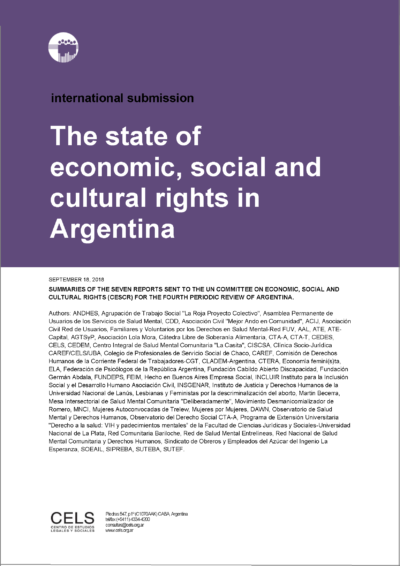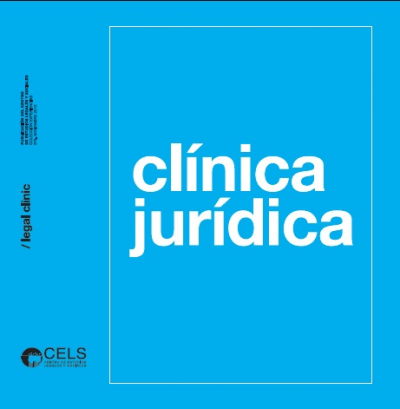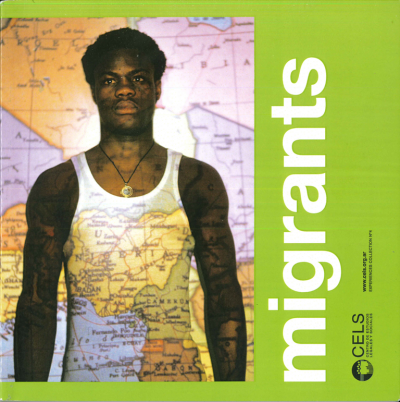IACHR Hearing: State fails to address refugee and asylum issues
CAREF, CELS, and the Jesuit Migrant Service (SJM) called on the Inter-American Commission on Human Rights (IACHR) to urge the Argentine government to repeal Decree 942/2024, as it undermines due process guarantees and the right to seek and receive asylum. Furthermore, we emphasized that the State must uphold its obligations regarding the rights of refugees and asylum seekers and, in particular, ensure the competence of the officials responsible for adjudicating asylum claims.
Urban drug trafficking, migrants, and the defense of activists: some of Cels’ topics for #fmdh23.
Between March 20 and 24, we will participate in the 3rd World Forum on Human Rights, organized by UNESCO, in Buenos Aires. As members of several committees, CELS is participating in more than a dozen activities for exchange and debate.
2023: shaping the future of democracy with human rights
Celebrations and debates will mark the 40th anniversary of Argentina’s democracy on December 10. From CELS, we are proposing content and spaces for participation to foster the collective momentum to navigate the challenges we are facing today.
UN urges Argentina to derogate and suspend decree that violates migrant rights
The Committee of the Convention on Migrant Workers (CMW) determined that the decree breaches international treaty ratified by Argentina in 2007.
Petition filed to the Inter-American System so a woman expelled from Argentina can be reunited with her children
The lawyer of Vanessa Gómez Cueva, Juan Martín Villanueva, along with Amnesty International, la Comisión Argentina para Refugiados y Migrantes (CAREF), the Center for Justice and International Law (CEJIL) and CELS, requested a precautionary measure so that she and her small child can reunite with their family.
The impact of new authoritarianism on human rights
Representatives of various organizations gathered in Geneva discussed the situation in the United States, the Philippines and Brazil, in light of authoritarian governments that have a sharp anti-rights discourse.
The state of economic, social and cultural rights in Argentina
Autor/a: Various
10 pgs.
ver más
Emergency decree against migrant persons: a selective and discriminatory policy
Today marks one year since the national government modified via emergency decree the country’s Migration Law, a product of years of collective struggle for democratic migration legislation. The result is a policy of selectivity that puts people under permanent suspicion.
Debate on the Global Compact: Human Rights Must Guide Migration Policies
The Global Compact on migration could be an unprecedented intergovernmental tool but the majority of states have expressed an interest in intensifying the current model, centered on controls and security, instead of transforming it.
“Migration policies achieve the opposite of what official discourse claims to seek”
In 2016, more than 5,000 migrants died in the Mediterranean. Many were attempting to reach the southern border of Spain, where deaths, disappearances and people wandering in search of their family members are a daily scene. Carlos Arce Jiménez, in Argentina under an agreement between the University of Córdoba (Spain), the University of Lanús’s Institute of Justice and Human Rights and CELS, talked to us about the responsibility of migration and border policies in this crisis.
IACHR hearing: Argentine state unable to justify the DNU on migrants
The Decree of Necessity and Urgency (DNU) on migrants associates migration with crime, basing its assessment on partial, decontextualized data. This promotes xenophobia and stigmatizes migrants.
While Argentina’s government furthers the stigmatization of foreigners, our organizations request dialogue
More than 150 organizations requested an urgent meeting with Argentine Cabinet Chief Marcos Peña, in order to propose to him that any modification to the Migrations Law must be debated in the multiple spaces that exist for this purpose, from working groups all the way to Congress.
Migrants in check: an immigration reform outside the law
The draft Decree of Necessity and Urgency (DNU) that we gained access to changes the paradigm of the current law and is a setback for migrant rights.
International debate on migration: Concrete action is needed in this critical situation
High-level plenary meeting on addressing large movements of refugees and migrants. United Nations General Assembly.
Irregular migration status is not a reason for detention
The government will build and open a migrant detention center, as a tool to “combat irregularity” and for situations beyond those specifically established by the Migration Law and its detailed regulations.
Legal Clinic
Autor/a: CELS
80 pgs.
ver más





